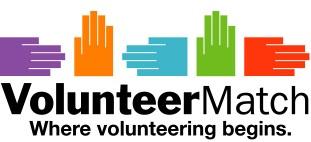Volunteer Opportunities with Food for Life Global
We receive numerous emails every day from people all over the world wishing to volunteer their time or specific skills in furthering the mission of Food for Life Global. Because the Food for Life Global offices has limited space, most of our volunteers work from their homes. Food for Life Global is the headquarters for all the Food for Life projects around the world, so we do not operate an actual feeding program, but rather support the hundreds of FFL Projects around the world, including many in the US. We do however get directly involved in disaster relief operations by recruiting volunteers and coordinating relief efforts.

The following information should give you some ideas on ways you could get involved in helping Food for Life Global working from the comforts of your home or office. For those who would like to get directly involved in feeding the needy or assisting a Food for Life affiliate program somewhere in the world, please let us know where you live and we will be happy to refer you to a Food for Life project needing help in an area nearest you. Some of the opportunities include gardening, teaching children English, art therapy for orphans, cottage industry training for poor women in India, etc. Food for Life Volunteers can be classified as one of three types, depending on the work they do: direct contact volunteers, technical assistance volunteers, or advocates.
Current volunteer opportunities at Volunteer Match

Direct Contact Volunteers
This type of volunteer comes into contact with a client or service recipient: Assist FFL feeding programs by preparing and/or serving meals Assist with emergency relief projects internationally Help build infrastructure for FFL projects Provide medical assistance to FFL clients Educational Services at FFL schools Other professional pro-bono services.
Technical Assistance Volunteers
As the name implies, these volunteers provide assistance with a task- or objective-based assignments, or a particular expertise. This group may include both onsite and offsite volunteers. They may be responsible for:

Conducting online research
Finding information to use in Food for Life’s (FFL) grant proposal or newsletter Grant research Gathering information on a particular government program or legislation that could affect FFL’s clients Gathering website addresses of similarly-focused organizations Using online phone books and websites to update contact information for a database.
Providing professional (pro-bono) consulting expertise
Answering FFL’s questions regarding human resources, accounting, management or legal issues, writing a speech, developing a strategic plan for a particular department, setting up a video conferencing event Translating a document into another language Providing multimedia expertise, such as preparing a PowerPoint, QuickTime or other computer-based presentations Designing FFL’s newsletter or brochure, or copy editing FFL’s publication or proposal Proofreading drafts of paper and online publications Researching and writing articles for brochures, newsletters, websites Designing or filling other illustration needs Preparing information for FFL’s Website Writing a technology plan, designing a marketing strategy, or directing other types of organizational planning and outreach Making sure FFL’s website is accessible for people with disabilities (508) compliance) Registering FFL’s home page and other appropriate pages with online search engines, directories and “What’s New” sites Adding an agency’s volunteer opportunities into online databases Doing regular searches for news articles relating to an organization or a particular topic Supervise or moderate social network sites that support FFL Train volunteers in a subject via the Internet.
Volunteer Coordination
Managing other volunteers in the aforementioned activities Providing an online orientation to all volunteers with Internet access (whether or not they are onsite or online volunteers) Surveying volunteers via e-mail about their experiences with an agency or program Keeping track of volunteer hours, and entering volunteer opportunities into FFL’s online Volunteer Matching Database.
Advocacy:
Posting information to appropriate online communities (newsgroups, lists, etc.), preparing legislative alerts to be sent via e-mail, keeping track of legislation that could affect FFL’s clients; Printing FFL marketing materials (posters, flyers, etc.) and distributing to the public; Setting up fundraising events; Representing FFL to green or vegetarian-friendly businesses; Promoting FFL through blogs and appropriate online forums; Representing FFL at green or vegetarian conferences.
